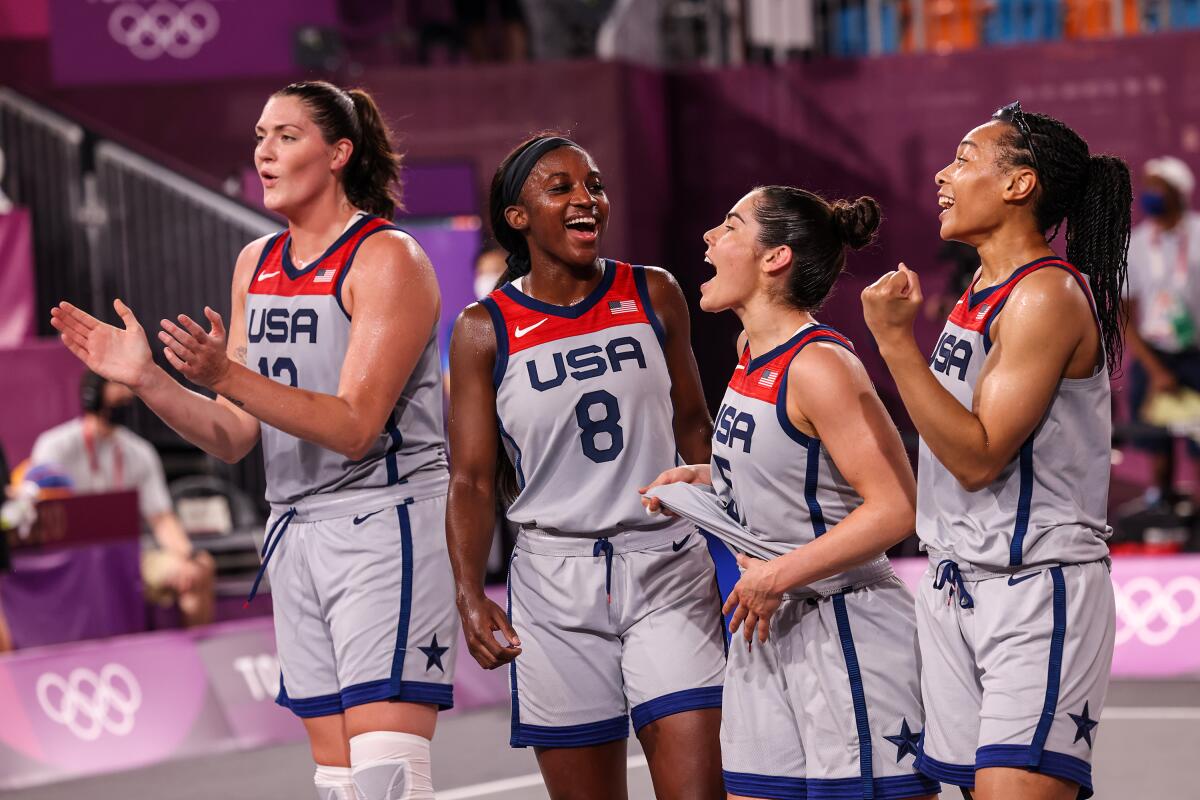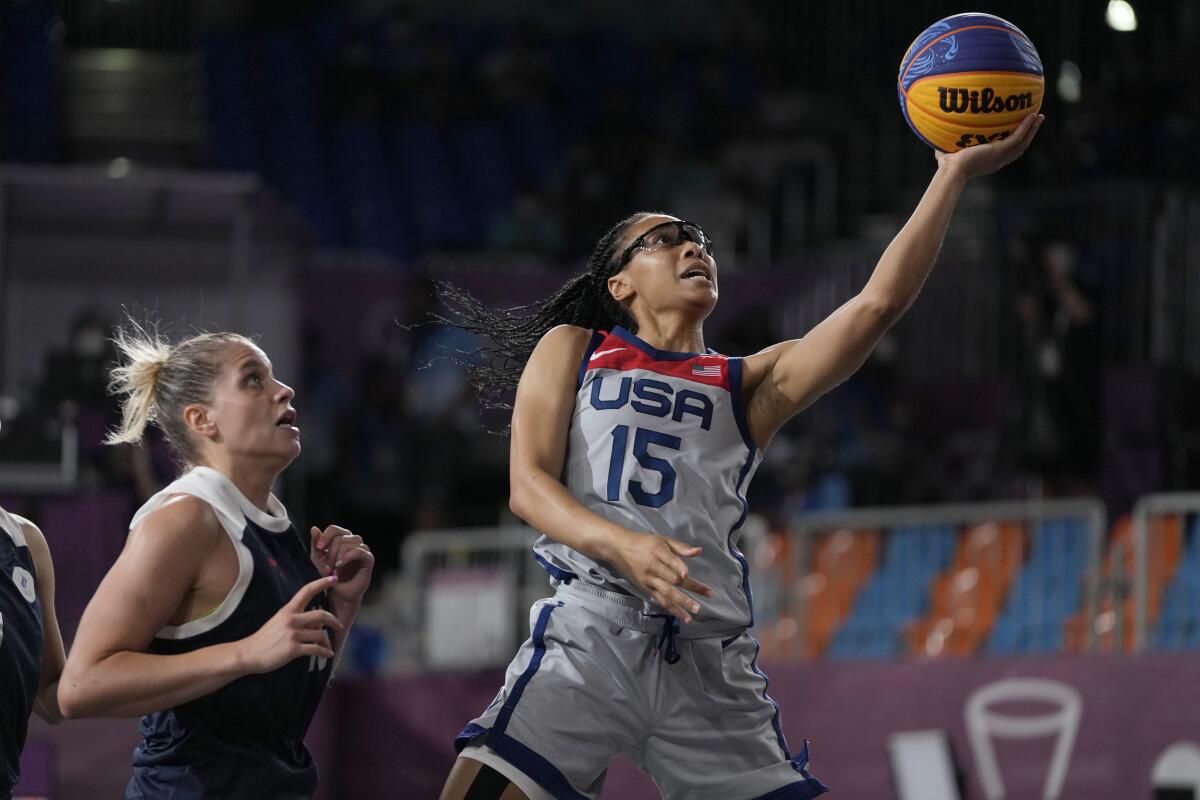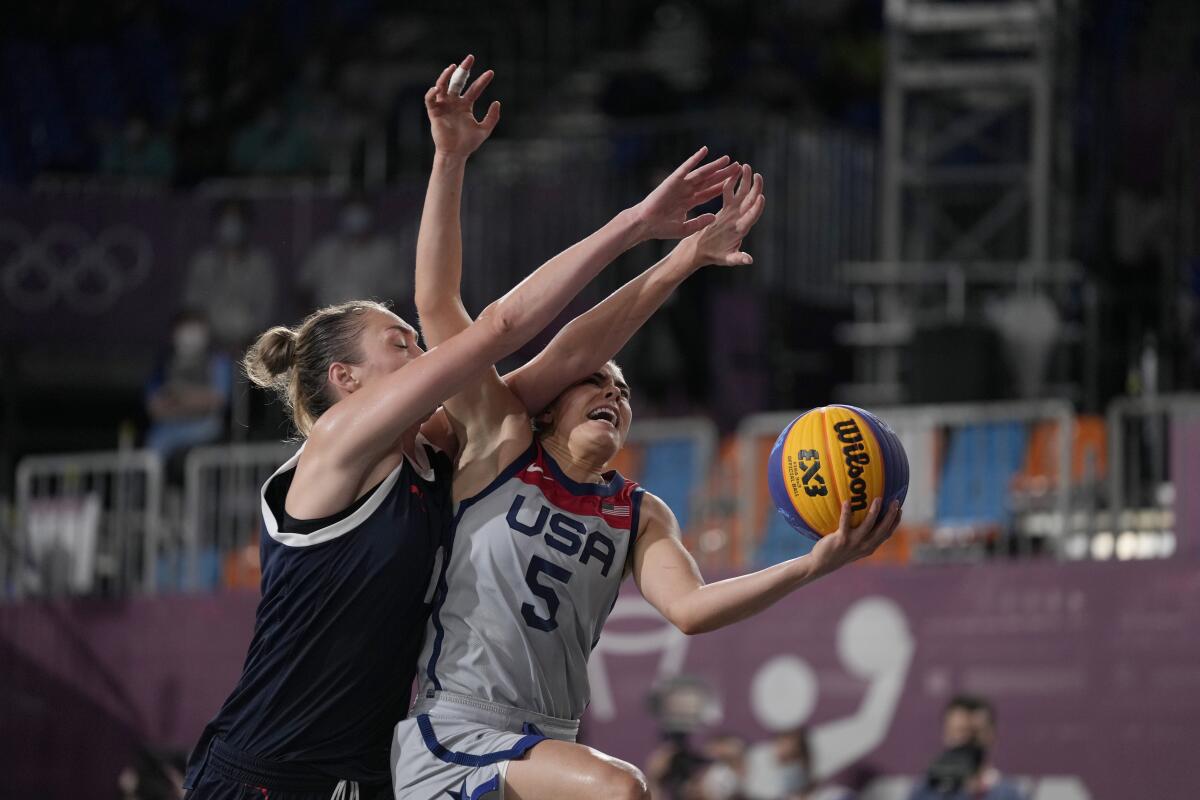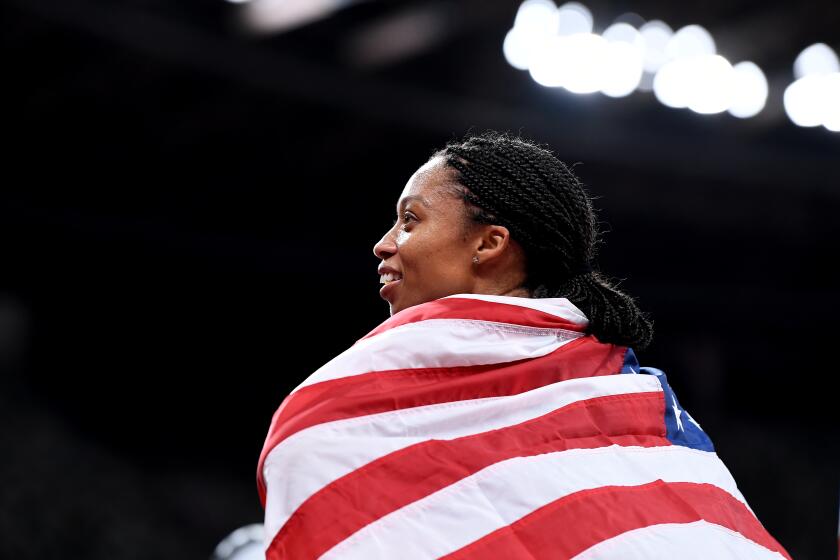U.S. women defeat Russian team to win gold in 3-on-3 basketball

- Share via
TOKYO — The sky was dark, the hot air was thick, the music was loud and the lights were bright, a rookie sport getting its golden moment Wednesday night.
A sport that seemed so silly and so contrived a week ago now seemed so central to what these Olympics could have been, a few thousand people bobbing their heads to a Daft Punk song while they watched a cobbled together group of WNBA stars win 3-on-3 basketball’s first ever gold medal.
“Grateful,” Kelsey Plum said, her newest trophy hanging around her neck.
Her team had just beaten the Russian Olympic Committee in the tournament final 18-15 to conquer this new version of the sport in a mostly empty stadium.
The fact that Plum was even competing is incredible.
A year ago she was in bed, unable to even go to the bathroom without help. She had torn her Achilles tendon, as scary an injury a basketball player can endure. She did it playing three-on-three in a series that was tied after four games. “One more game; it can’t end in a tie,” she thought.
Then — pop.
Olympic 3-on-3 basketball teams are made up of WNBA players who are managing to make an impact in Tokyo despite it being a much different game.
Plum, who went to high school in La Jolla, spent the early stages of her recovery reliant on a scooter. A little more than a year later, she walked off the court with gold and a passion for basketball’s rebellious sibling.
“It’s a place where you can kind of let your hair down,” Allisha Gray said.
In an Olympics where there’s been so much heavy news, so much disappointment, the 3-on-3 (“3x3” as FIBA calls it) tournament has been a perfect palate cleanser.
Someday, the sport will get the crowd it’s designed for — a single-serving of basketball where the games end in 10 minutes — a high-speed, open-road demolition derby that somehow combines skill, space, physicality, intensity and drama.
That was the idea to begin with, to capture the energy of the world’s playgrounds, the no-blood, no-foul mentality, the play to 21, ones and twos. Then you put it in an intimate venue, dress it up with music and commentary.

And then you hang on.
“It was going to be something new, something different,” Stefanie Dolson said. “And that’s exactly what it is.”
The U.S. women’s team melded the different styles of its players, Plum’s swagger, Dolson’s size and skill, Gray’s shooting and slashing. When one of their players, Katie Lou Samuelson, tested positive for COVID-19 less than a week before they departed, the team added Jackie Young and kept moving.
It was chaotic, but so is this game. Earlier in the tournament, Italian guard Rae Lin D’Alie called 3-on-3 “a tornado.” And while it might not have been a sensation, it had built significant word-of-mouth buzz among the journalists covering the Games in Tokyo.

Continued involvement from the WNBA and future involvement from the NBA could help build the sport even more.
The Olympic debut of 3-on-3 showed how fast and physical basketball could be served in bite-sized helpings. Leads were built and vanished in seconds, and even the in-house music couldn’t mask the sound of shoulder-block screens and judo post defense.
“Nothing like it,” Dolson said with a smile, the referees largely functioning as set decoration for the action.
Wednesday night went about as well as organizers could’ve planned. The U.S. survived a tight game with France before winning in the final, giving 3-on-3 some recognizable names and faces on the podium. And the men’s final ended when Latvia hit a walk-off two-pointer to beat Russia, a reminder of the swift finality the sport can offer.
News, results and features from The Times’ team of 12 reporters who covered the Tokyo Olympic Games in the summer of 2021.
As the session wrapped and cool air rolled in off Tokyo Bay, the referees who worked the tournament gathered in the stands to embrace one another. Players signed basketballs for the historical record and volunteers hustled to transform the court for the medal ceremony.
As they assembled the podium near the free-throw line, one worker bent over with a roll of silver tape and marked four “X’s” on the third-place stand and four on the second-place pedestal. The stage for the winners was left blank.
When you’re champions, you get to stand wherever you want.
More to Read
Go beyond the scoreboard
Get the latest on L.A.'s teams in the daily Sports Report newsletter.
You may occasionally receive promotional content from the Los Angeles Times.









